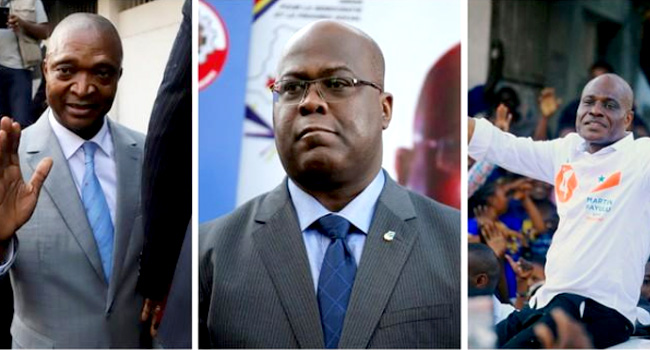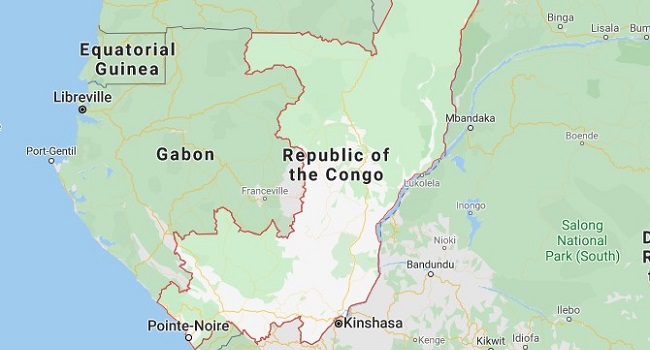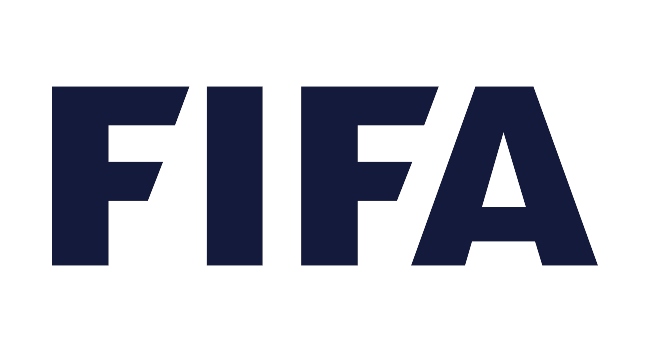
Former Congolese interior minister Emmanuel Ramazani Shadary (L) at the Congo’s electoral commission head offices in Kinshasa in Democratic Republic of Congo on August 8, 2018, Felix Tshisekedi (2-L), leader of Congolese main opposition the Union for Democracy and Social Progress (UDPS) and Congolese joint opposition Presidential candidate Martin Fayulu (R)
The Democratic Republic of Congo will hold a presidential election on Sunday that could lead to the country’s first democratic transfer of power, following decades marked by authoritarian rule, coups and deadly conflict.
The outcome of the long-delayed vote to choose President Joseph Kabila’s successor is far from certain, after a campaign marred by violent crackdowns on opposition rallies and the destruction of thousands of the capital’s voting machines in a fire last week.
Kabila’s preferred successor, Emmanuel Ramazani Shadary, is facing a credible challenge from two opposition leaders: Felix Tshisekedi, president of Congo’s largest opposition party, and Martin Fayulu, a former Exxon Mobil manager and businessman.
One poll conducted by New York University’s Congo Research Group (CRG) in October showed opposition leaders were favoured by about 70 percent of voters. Tshisekedi came first with 36 percent support, ahead of his now coalition ally Vital Kamerhe (17 percent) and Shadary (16 percent). Fayulu ranked fourth with eight percent support.
In all, 21 candidates will be running, including several other prominent Kabila critics, which risks diluting the opposition vote and boosting Shadary’s chances.
The results could also be compromised by accusations of fraud similar to those that tarnished the 2011 presidential election. The opposition has already cried foul over the use of untested electronic voting machines that they say will make it easier to rig the results.



